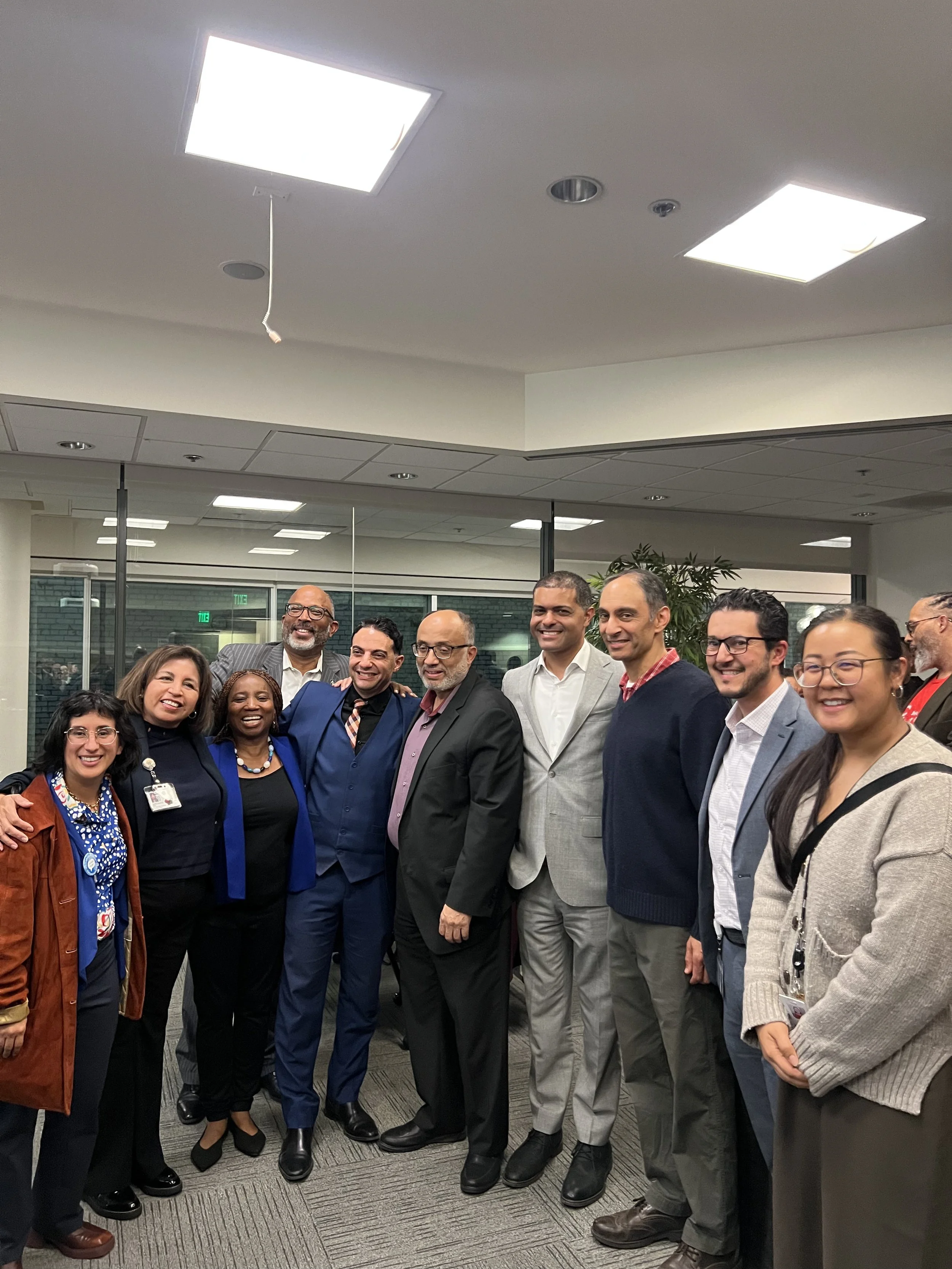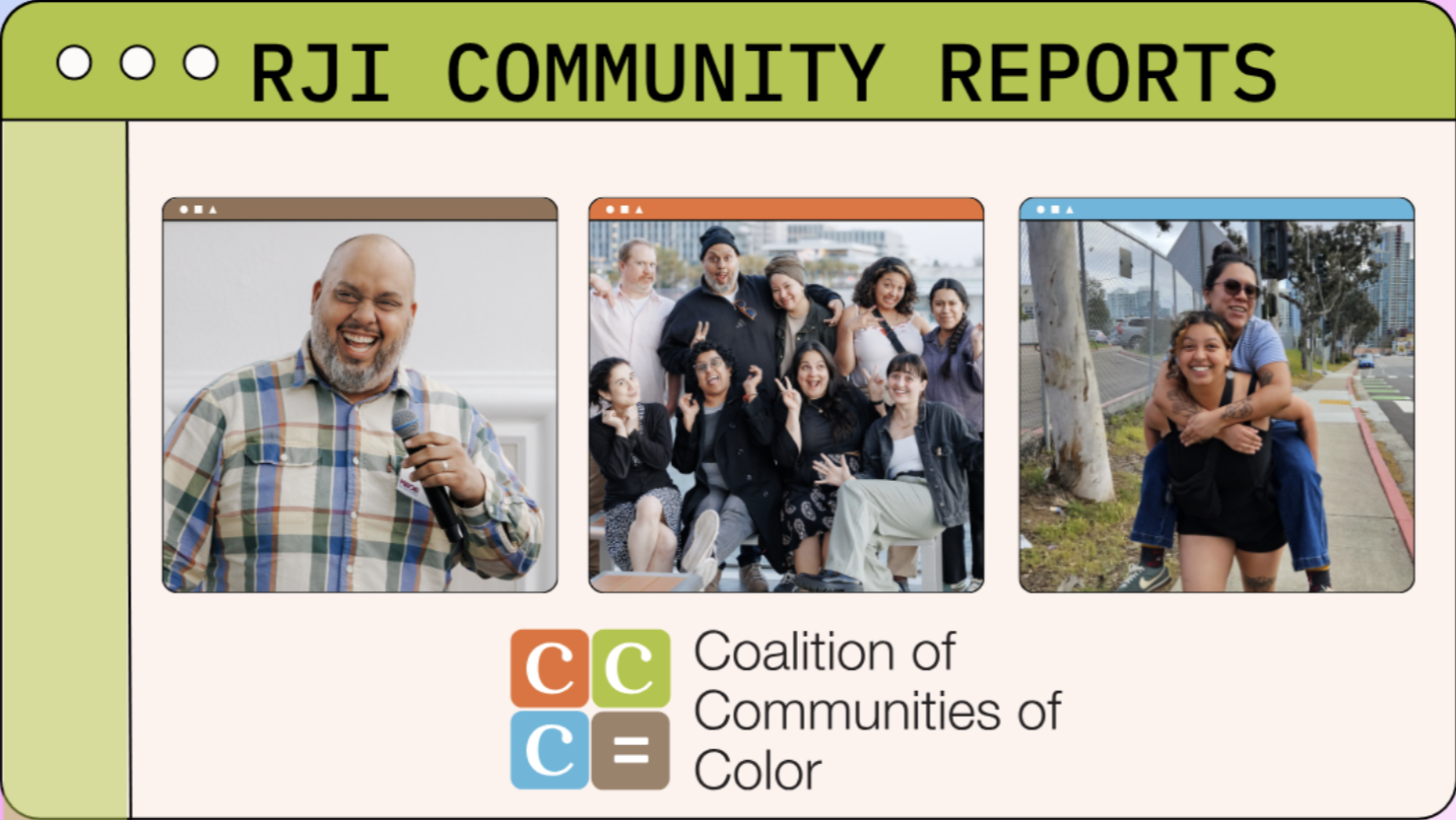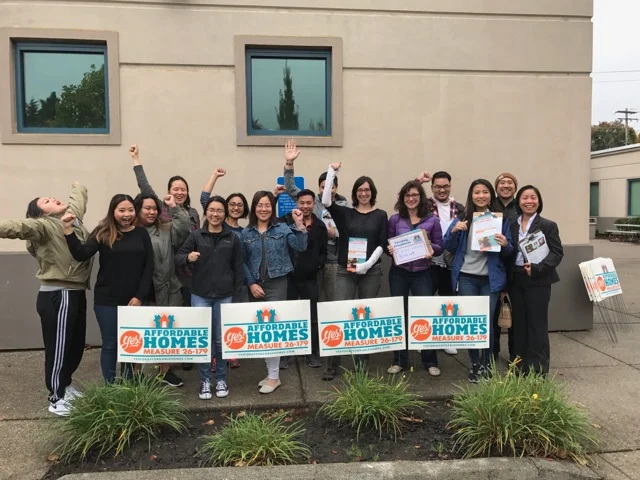NEWS RELEASE
Contact:
Dani Ledezma, Interim Executive Director
(503) 381-9990
dani@coalitioncommunitiescolor.org
Limits to No-cause eviction are necessary to reduce displacement of Oregonians of Color.
“ReBuilding Community” report released by the Coalition of Communities of Color and Urban League of Portland recommends passing HB 2004
According to the “ReBuilding Community” report, policymakers can help slow the displacement of communities of color by passing HB 2004, which limits evictions without cause against individuals and families who follow the terms of their leases. Community leaders from the Coalition of Communities of Color and the Urban League of Portland released this report highlighting cross-cultural and community-specific solutions to address our housing crisis. The report was funded by Meyer Memorial Trust.
Advocates are sharing the report with Oregon lawmakers currently debating HB 2004, so that policymakers can better understand the disproportionate effect that the lack of tenant protections has on communities of color.
“The Urban League and the member organizations of the Coalition of Communities of Color hope that highlighting the experiences of Black Oregonians will motivate lawmakers to do the right thing. After years of watching while our communities were pulled apart, with the help of state and local government investments, this legislature can act to end the unjust practice of no-cause evictions. Without legislative action, no-cause evictions will continue to hurt their constituents and the character of the neighborhoods that we call home,” said Nkenge Harmon Johnson, Chief Executive Officer of the Urban League of Portland.
Today, Oregon’s housing laws allow any property manager or landlord to - at any time - kick people out of their homes without giving a reason. These notorious “no-cause” evictions are traumatizing because they rip children from schools, destroy communities, and displace low-income families, throwing them into crisis, and often causing homelessness.
The “Building Community” report is based on the experiences of many Portlanders from communities of color, advocacy organizations and a series of culturally-specific focus groups held over six months. It provides a vivid narrative of the impact displacement, and gentrification has on communities.
According to the “ReBuilding Community” report, no-cause evictions are today’s example of state-sanctioned practices that displace communities of color. Historic segregation, fueled by redlining, property seizures by local jurisdictions, block busting, racist lending practices, and many other policies have resulted in communities of color living in historically underinvested areas. As neighborhoods become more popular attracting public investments and development, they also gain in value and trigger property managers and landlords to raise rents and use no-cause evictions to reach a higher paying market for their units. Residents are pushed out of their homes and often seek affordable rents miles away from their historic neighborhoods.
Families of color are much less likely to own their homes than white families and have less wealth accumulation according to Pew Research Center. Now, rental homes are also increasingly out of reach. A report released Thursday by the National Low Income Housing Coalition showed that the fair market rent for a two-bedroom apartment in Oregon jumped 27 percent in the last five years, from $807 in 2012 to $1,028 in 2017. It would take an income of $19.78 an hour to afford the apartment in a state where the median income is $18.26 an hour, and people of color earn half the median income.
“Our members have experienced no-cause evictions used as a tool to discriminate against them. Their landlords wanted to make way for ‘different’ kinds of tenants,” says Katrina Holland, Executive Director of Oregon Community Alliance of Tenants, “Let’s call that what it is: coded language specifically talking about communities of color. It is unacceptable and we refuse to believe that our legislators are okay with that loophole perpetuating systemic racism, prejudice, and oppression. HB 2004 is an essential policy that helps stem the tide of displacement and end the discriminatory practices that cause instability for families and individuals.”
HB 2004 would prohibit no-cause evictions from large landlords and property managers after a nine-month waiting period, giving much needed protections and stability for people who rent their homes. It is currently waiting for a vote in the Oregon Senate.
The impacts of displacement for mothers and children of color are devastating. There are a record number of homeless children in Oregon today. According to school surveys, some 21,352 pre-schoolers and K-12 students experienced homelessness during the 2015-16 school year. “ReBuilding Community,” highlights a survey from the Multnomah County Health Division that surveyed pregnant African American women and their families about how they are being affected by the housing crisis. Twenty-five percent of the women reported having to move or be homeless while pregnant, and 30 percent of the North and Northeast Portland residents had to move out of the area against their will.
“We must take action before leaving Salem. No-cause evictions are unjust, unnecessary, and have a disproportionate effect on communities of color,” said Representative Diego Hernandez, (D-East Portland.) “I see the effects in my district. I hear from my constituents who are left with nowhere to go. Oregon has a record number of homeless children and mothers being forced from their homes with no legal recourse. It's time to pass HB 2004 now.”
Hernandez also says his colleagues in Salem need to hear from communities right now to hear how much support there is for tenant protections. To contact your lawmaker and get involved, go to www.StableHomesOR.org.






















